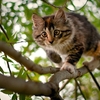All organisms in an ecosystem are interrelated by the abiotic and biotic resources they use in the course of their lives:
a. Describe the relationships that exist among a mockingbird, caterpillar, milkweed, and soil in a particular ecosystem.
b. Discuss TWO examples of the impact of human population growth on abiotic components of the environment. For each example, explain how a change in the abiotic component will impact the biotic component of the biosphere.
Answers (1)
Know the Answer?
Not Sure About the Answer?
Find an answer to your question 👍 “All organisms in an ecosystem are interrelated by the abiotic and biotic resources they use in the course of their lives: a. Describe the ...” in 📗 Biology if the answers seem to be not correct or there’s no answer. Try a smart search to find answers to similar questions.
Search for Other Answers
You Might be Interested in
The plant has to produce carbohydrates because
Answers (1)
What happens when both numerator and denominator are negative?
Answers (1)
Briefly describe why all burners must be turned off before any developing chambers are prepared
Answers (1)
Which evidence supports the big bang theory? Check all that apply. Many galaxies exist. Planetesimals form in debris disks. Most galaxies are moving away from us. Uniform background radiation is detected in every direction.
Answers (1)
What enables pcr to amplify just one location (locus) in a person's genome as opposed to several loci scattered throughout the genome (what gives pcr its specificity) ?
Answers (1)
New Questions in Biology
Which statement best describes the relationship between activation energy and rate of reaction? O Increasing the activation energy can increase the rate of a reaction. O Reducing the activation energy can increase the rate of a reaction.
Answers (2)
Definition: this is a haploid cell with half the reproductive information from the parent.
Answers (1)
Does a cell use energy when molecules diffuse in or out of the cell? Why?
Answers (1)
Below is a list of possible challenges. Check all errors that you mentioned in your answer. Traits other than beak type might affect natural selection. It could take many generations to observe adaptions to a population.
Answers (1)
A farmer dug a well but did not find any water Which reasons most likely explain why the farmer did not find water? Check all that apply.
Answers (2)

